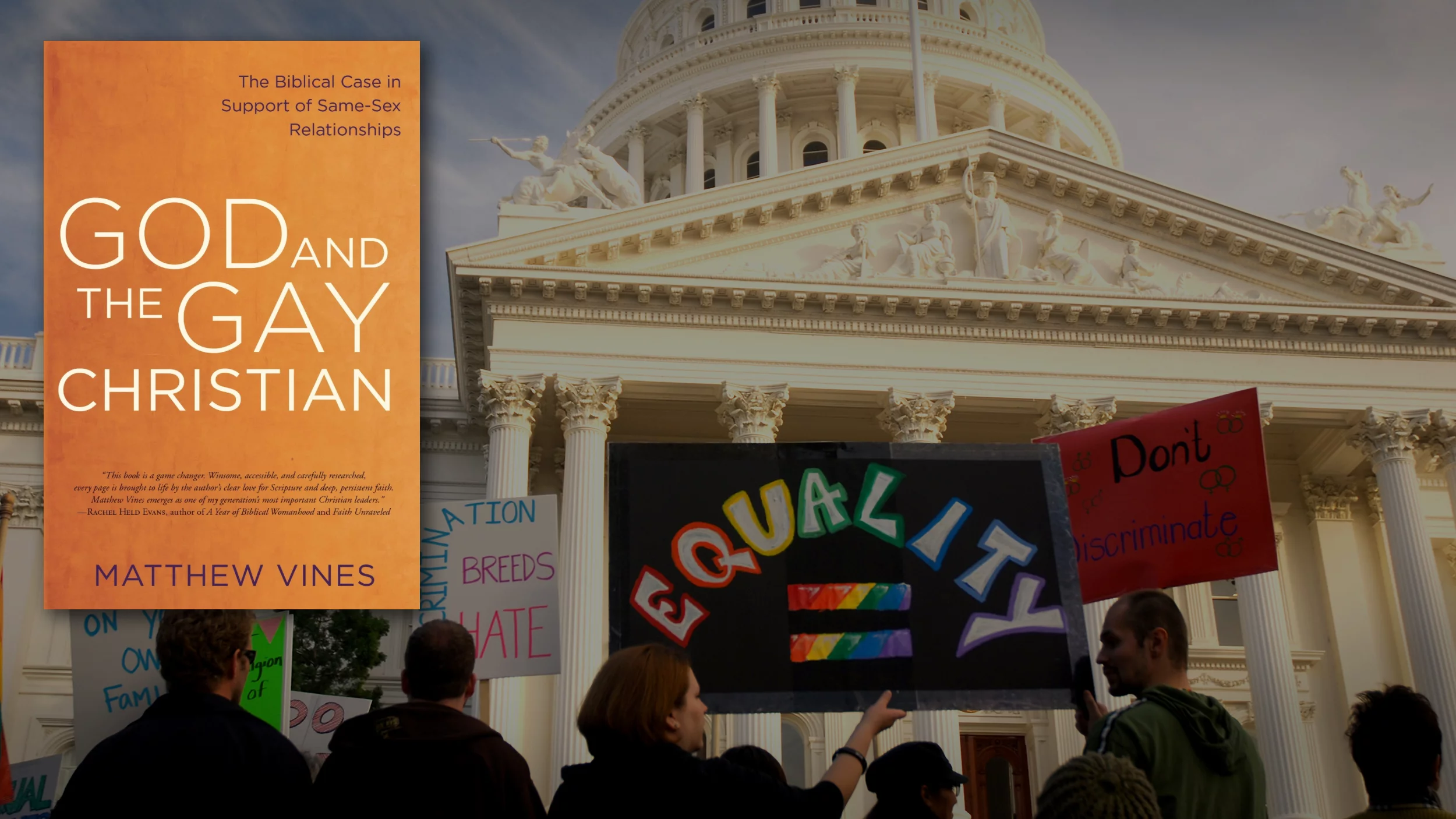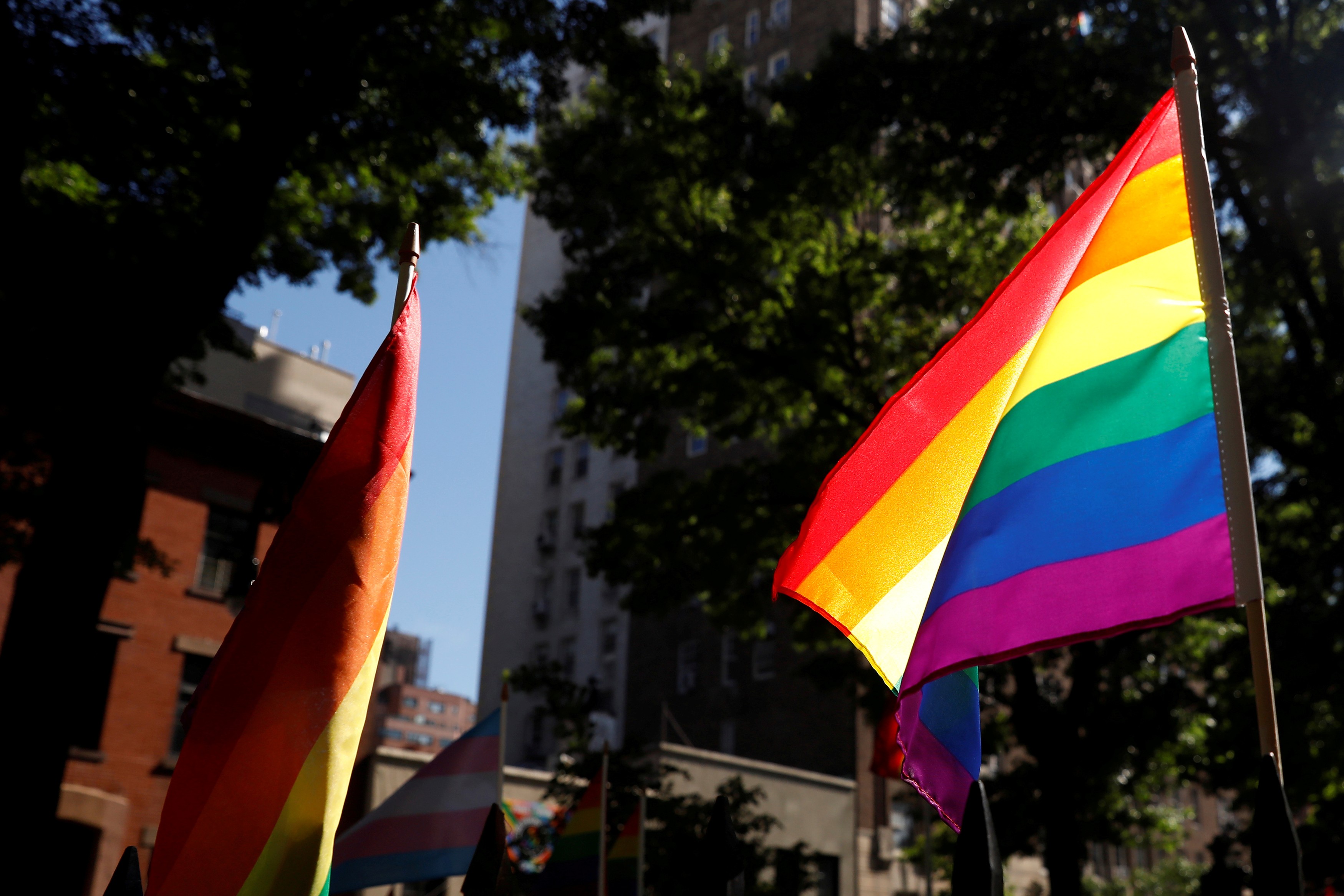LGBT Issues And Beliefs In Christianity
In a world where diverse beliefs and values intersect, one of the most profound journeys a person can embark on is the exploration of their own convictions, particularly when they collide with complex issues like LGBT in Christianity.
Author:Bernard HorneOct 22, 20234.8K Shares369.8K Views

In a world where diverse beliefs and values intersect, one of the most profound journeys a person can embark on is the exploration of their own convictions, particularly when they collide with complex issues like LGBT in Christianity.
Personal reflections serve as an example of the path's difficulties, internal conflicts, and moral dilemmas. In this article, the fundamental idea of love serves as a guide as it explores the intersection of Christianbeliefs and the acceptance of LGBT people.
LGBT Acceptance Christian Teachings
The gravest sin might not be what many have been taught. Instead, it is the sin of failing to love one's neighbor as oneself, a fundamental principle that stands above all others.
These reflect the misguided rationalization of not treating others with the same respect and kindness they desire for themselves. This common tendency among non-affirming Christians, especially concerning issues like homosexuality, is viewed as contrary to the essence of Christ's teachings.
The core message is clear: the starting point should be to love our neighbors as we love ourselves, comprehending how we wish to be treated and extending the same courtesy to others. Only after grasping this principle can individuals move forward to address other aspects of faithand morality.
In the words of the apostle Paul, even truth devoid of love holds no value. This encapsulates the essence of their newfound understanding: love must be at the heart of all actions and convictions.
Those emphasizing condemnation of homosexuality more than loving one's neighbor as oneself have lost sight of Christ's true teachings. This, they assert, is a grievous failing that not only undermines the essence of Christianitybut also alienates those who accept LGBT individuals.
The fervent hope is that the churchcould redirect its focus. By expending as much effort on understanding how to love ourselves and rectifying our failures in loving others as it does on condemning homosexuality, the churchcould become a more significant force for good in the world.
Such a recalibration, they believe, would steer the church away from the self-aggrandizing misprioritization of the Gospel and toward a more compassionate and inclusive path.
Decoding Biblical Interpretation And LGBTQ
When we open the Bible, we embark on a journey of interpretation. For individuals who identify as LGBTQ+, this journey often involves reconciling their relationships and identities with the scriptures. They are frequently confronted with the assertion that they prioritize their experiences over scriptural authority, essentially rejecting the Bible's role in their lives. But is this a fair evaluation? Are there truly neutral interpretations? And who determines the one correct way to interpret the Bible?
The discipline of biblical interpretation, known as hermeneutics, equips us to grapple with these questions. Hermeneutics guides us beyond the question of "what does this say" to "what does this mean." When we inquire about "What does the Bible say about homosexuality" (or more appropriately phrased, "What does the Bible say about same-sexattraction"), our missionis to explore the original context and contemporary significance of pertinent biblical passages.
Specifically, we aim to ascertain whether the biblical authors intended to condemn specific sexual practices prevalent in their era, or if they intended a condemnation of all same-sex relationships for all time.
Many evangelicals and conservative Christians respond affirmatively to this question. Their interpretation asserts that same-sex relationships are incompatible with God's creative intent. They base this stance on an "unbiased" interpretation of relevant passages and the belief that gender differentiation is an essential component of Christian marriage.
Marriage, as per the New Testament, symbolizes the love between Christ and the Church. According to this interpretation, same-sex couples (and single individuals) are uniquely excluded from this symbol due to their perceived inability to fulfill the vague notion of 'gender complementarity.'
While gender complementarity is rooted in Genesis 1 and 2, Scripturedoes not explicitly restrict God's creation to a binary gender system. This account says little about gender in terms of social and cultural norms. Two key dimensions of the text become relevant when considering the biblical affirmation of intersex, transgender, non-binary, and other gender-diverse individuals.
Furthermore, scripture implies that respecting its authority does not necessitate the rejection of experience as a teacher. The Sermon on the Mount in Matthew 7:17-18, where Jesus talks about good and bad trees bearing corresponding fruit, indicates that experience should inform our understanding of God's truth. This concept guided the early Christian inclusion of gentiles not adhering to the Old Testament law, the abolition of slavery, and the promotion of women's equality throughout church history.
Reconsidering Interpretations In Light Of Love
The call to reform Christian teaching does not imply prioritizing human experience over Scripture. Instead, it suggests that the evident exclusion, injustice, and harmful consequences of widely accepted beliefs should lead Christians back to the text for a different perspective.
The Bible never endorses oppression; rather, it insists on redemptive suffering, which resists oppressive forces. For these reasons, Christians have a moral obligation to reevaluate their interpretation of what the Bible says about LGBTQ+ identities.
The six passages addressing same-sex eroticism in the ancient world express negativity about the practices they mention, but they do not necessarily condemn loving, mutual same-sex relationships. Cultural, historical, and linguistic contexts surrounding the sexual practices of the biblical authors suggest that what the Bible condemns differs from committed same-sex partnerships.
For instance, the stories of Sodom and Gomorrah (Genesis 19) and the Levite's concubine (Judges 19) revolve around sexual violence and societal norms regarding male honor. The prohibition against "lying with a man" (Leviticus 18:22, 20:13) aligns with concerns about health, lineage continuation, and Israel's distinctiveness as a nation.
The New Testament addresses the topic in lists of vices (1 Corinthians 6:9, 1 Timothy 1:10) and likely pertains to the sexual exploitation of youngmenby older men, a practice known as pederasty. What we read in Paul's letter to the Romans forms part of a broader indictment against idolatry and excessive, self-centered lust rather than a condemnation of loving and serving, as outlined elsewhere in the Bible.
While it is true that Jews and Christians in the 1st century were likely unaware of sexual orientation as a concept, this does not render the biblical authors incorrect. It does indicate that continued opposition to same-sex relationships and LGBTQ+ identities should be grounded in different principles, bringing us back to the theology of Christian marriage.
What Defines Christian Partnership?
While rectifying past, exclusionary interpretations is essential, it should not overshadow the inclusive aspects of Christian theology for LGBTQ+ individuals. The quest to unlock a deeper understanding of sexuality, applicable to all, should not be stifled. Passages from Genesis 2, Matthew 19, and Ephesians 5 underscore a common theme: Christian marriage is sacred because it symbolizes the enduring love between Christ and the Church.
Christian partnership is an opportunity to manifest God's love, requiring empathy, compassion, active listening, sacrifice, and adherence to the golden rule: "love your neighbor as yourself." There is minimal evidence that biology or views on gender are the prescribed distinctions.
The design for Christian partnership reflects the purest and most profound love: selflessness, enduring, and liberating love between God and creation, made accessible through Christ. This love is a formidable task, but countless LGBTQ+ individuals and couples are embracing it and continuing to do so.
Hermeneutics and a reevaluation of exclusive viewpoints in the context of love and inclusivity serve as guides for understanding and interpreting the Bible's position on LGBTQ+ identities, which is a continuous and evolving process.
It requires an exploration of the original contexts, a deep reflection on the broader message of Scripture, and a commitment to upholding Christ-like love and compassion for all individuals, regardless of their sexual orientation.
Views Supportive Of Homosexuality
Some have argued that passages in the Bible on homosexuality are either mistranslated or do not pertain to modern-day homosexuality because of the challenges posed to orthodox theological viewpoints and understandings by theologians in the 20th century. Some Christians maintain that the Bible has been misconstrued or that the verses in question do not apply to homosexuality in the modern sense.
Liberal Christian academics acknowledge the Hebrew and Greek texts of the earliest Bibles, but they raise questions about possible forgeries and biases in subsequent translations. They advocate for a return to what they see as an older religious understanding of sexual relationships.
Several early Christians, according to Yale professor John Boswell, and even certain Biblical characters had homosexual relationships. He also contended that the ceremony of adelphopoiesis, which unites two males, is the theological equivalent of a same-sex marriage. Not everyone agrees with him, however; critics have pointed out that the procedure in question was intended to honor a purely platonic fraternal connection and not a gay union.
Homophobia is a "crime against humanity" and "every bit as unjust" as apartheid, according to Desmond Tutu, the former Anglican Archbishop of Cape Town and Nobel Peace Prize recipient. Leader among modern LGBT Christians, Justin R. Cannon, advocates for "Inclusive Orthodoxy," which upholds the Bible's inspiration by God and the Tradition's supreme authority.
Even in churches that have traditionally frowned upon homosexuality, many members of the faithful are beginning to accept same-sex couples as valid partners today. This societal shift is causing discord among many religious communities, including schisms and huge exodus from traditional organizations.
Comments On Reddit
“„To go a little further, I think there's a good scriptural argument that our modern expression of LGBTQ identities and relationships are not even sinful in the first place. People sometimes point to passages like Galatians 5's admonition against sexual immorality as proof of the Bible's stance against LGBTQ identities... but that is circular logic. They assume LGBTQ is immoral then read that assumption into the text. But I would argue that Galatians 5 in particular is proof that God does not view LGBTQ as sinful. The chapter is about the freedom Christ gives us to grow beyond the limiting principle of merely following the letter of the law. It lists the fruit of the Spirit as love, joy, peace, forbearance, kindness, goodness, faithfulness, gentleness and self-control. Against such things there is no law. I read that to mean that actions that produce those positive fruits are not against God's law. And when I look at modern LGBTQ identities and relationships I don't see anything that would inherently put them at odds with those fruits.- tadcalabash, a Reddit user
“„The good thing here is that there is no actual commandment to hate the sin, love the sinner The only commandment we're given even remotely related to this is just to love others. So, no it isn't a sin to love and support LGBT people.- TinyNuggins92, a Reddit user
“„I had this same struggle when I was still a Christian. I ultimately ended up deconstructing before I had the chance to examine that fully from a Christian perspective, so I can't speak to potential theological solutions in great detail, just that there are plenty of Christians out there who feel this, and plenty who have ended up finding a way to be an affirming Christian. Speaking with people in those communities to understand how they get there may help you. I wish you the best of luck.- illusoryMechanist, a Reddit user
Frequently Asked Questions
How Do Some Conservative Christians Interpret The Bible Regarding Same-sex Relationships?
Many conservative Christians interpret the Bible as indicating that same-sex relationships do not align with God's creative intent. They base their views on what they consider unbiased interpretations of relevant passages and the belief in gender complementarity as essential to Christian marriage.
What Do The Biblical Passages Addressing Same-sex Eroticism Really Mean In Their Cultural And Historical Contexts?
These passages express negativity toward certain practices but do not necessarily condemn loving, mutual same-sex relationships. The contexts reveal that what the Bible condemns differs from committed same-sex partnerships.
What Defines Christian Partnership If Not Gender Or Gender Complementarity?
Christian partnership is defined by the enduring love between Christ and the Church. It emphasizes qualities like empathy, compassion, active listening, sacrifice, and the commitment to "love your neighbor as yourself." It transcends notions of biology or gender, allowing individuals of all backgrounds to participate in the profound love reflected in Christian marriage.
Final Words
The complex relationship between biblical interpretation and LGBTQ+ identities raises profound questions about inclusivity, love, and faithwithin the realm of Christianity. As we delve into the study of hermeneutics, it becomes clear that interpretation is not a static process; rather, it evolves as we reevaluate the biblical text in its original context and its relevance to contemporary society.
The traditional, exclusionary interpretations of the Bible regarding same-sex relationships are being challenged, with a growing recognition that love and compassion are the core values of Christianity. The Bible, when examined with an open heart, does not inherently oppose LGBTQ+ identities.
Instead, it invites us to embrace the true essence of Christian partnership, transcending rigid notions of gender and biology. The ongoing dialogue surrounding LGBTQ in Christianity invites the faithful to explore the deeper meaning of love, acceptance, and the enduring bonds that tie individuals together, echoing the love between Christ and the Church.

Bernard Horne
Author
In this signature of the father, Jesus, and the holy spirit. Exploring how God’s Word challenges us to live 100% according to His will so that we can come to a life of victory!
Latest Articles
Popular Articles
